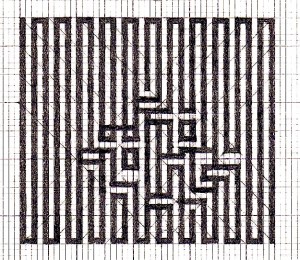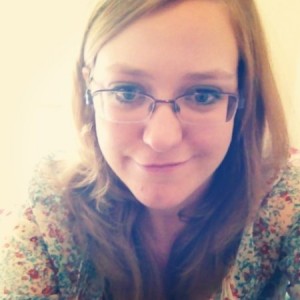The next Social Scholar seminar will take place at 1pm on 19 February 2014 in room 246 (Senate House). This month we will be looking at how two different museums use social media and how this might be of interest to academics, archivists, librarians and other related staff members and students.
We are delighted that we will be joined by Kajsa Hartig from the Nordiska Museet (Sweden) and Kat Box from Manchester Museum. This should prove a fascinating opportunity to discuss social media in related fields and to contrast activity in the UK and Sweden. As always the seminar is FREE and open to all. Please RSVP via Eventbrite
An interview with Kathryn Box (Marketing Officer, Manchester Museum)
In preparation for the Social Scholar, we sat down with Kathryn Box to find out a little more about what she does at the Manchester Museum and what she has planned for us this month.
First of all, could you tell us a little bit about yourself?
I’m currently Marketing Officer at Manchester Museum, facilitating and delivering exhibition campaigns and promoting
events. In my spare time I also co-direct the Acute Agency, a charitable enterprise providing media consultancy services to charities and third sector organisations. Having redesigned the online environments for Abrams and Chronicle books and Students as Partners, I specialise in developing maximum impact communication strategies using minimal resources – and training teams to deliver those strategies. With a background in Geography and Psychology I also have a keen interest in interdisciplinary learning and new technologies.
Why do you think Social Media is useful?
Brontide by Isabel Moseley offers a way of thinking about the ungraspable qualities of space (in this case the Internet and social media) and highlights the power of networks – both themes I will touch upon in my talk and discussion.
Social media has the potential to build networks and aid in the curation of the vast amount of information online. It connects people on a local and global scale, meaning that you can talk to anyone, anywhere, anytime. It breaks down the barriers between institutions and audiences, creates communities and encourages collaboration. While individual social media accounts alone are of little consequence, where their relationships and slight movements are made visible the picture becomes altogether different. There’s no inherent power to online media, but we can flesh out the digital world’s binary skeleton with our conversations and content; broadening our networks and the flow of information.
What can we expect from you at the Social Scholar?
I will be discussing the role I play in connecting our audiences, specifically students and academics, to the inner workings of the Museum. As well as looking at our social media platforms, I’ll explore how the Museum blogs are one of the most useful vehicles in facilitating this relationship, aiming to get the curator out of the office and online, discussing current research and contributing to academic debates.
Through the workshops I run at the University of Manchester Library I use online content and social media to help students think creatively about research, (hopefully!) inspiring curiosity and a greater understanding of the cultural landscape in the North West.
Keeping Museum objects and collections at the heart of digital engagement, I’ll cover some examples and benefits of looking at social media and online content as a creative tool in bridging academic disciplines. I hope to encourage ‘thinking interdisciplinary’ online and how this can widen your audience, maximise engagement and facilitate meaningful conversations.
Do you think blogging is a useful pursuit for academics and why?
There is no doubt that blogging is a useful pursuit for academics. There are numerous professional and personal reasons why it is beneficial, which indeed I could talk for hours about….
From my experience at Manchester Museum, the blogging curators get to ‘diary’ their day to day practice. Ultimately building up a record of activity and events, as well as thinking (and typing) about findings, research and theories. They get to join in debates and show off about the fantastic collection they get to explore. As most academics spend years writing their thesis, blogging is an instantaneous e-journal, which breaks down the barrier between the learner and academic. Students and peers get an amazing insight into a world which goes on behind the scenes at a museum, gaining a better understanding about how curators tick and how these big cultural institutions work.
This does indeed mean that in Marketing we are asking quite a lot from our curators, on top of their already heavy work load. However thinking about blogging as a part of your way of working and resource management, it can become a source of structure and excitement. Blogs can create a level playing field for teacher and learner (blogs can be seen to have ‘democratic potential’) and it is a great way for those quiet students at the back of the class to engage.
Over time blogs have become easier and easier to set up, but time is not wasted making sure it is user friendly and enticing to the reader. It is important for academics to stay relevant to their audience and most importantly, are active. This means a bit more than publishing a post every week. Once you’ve written a post, encourage comments (this may be tweeting about your post, making a video, emailing your post to people). Then when you get comments: reply. Encourage feedback, be honest and question responses. This all helps in starting a real dialogue and discussion, which is pivotal to a successful (and of course, useful) blog.
Full details of this event can be found on the SAS events system. The Social Scholar is a FREE event held by the School of Advanced Study every month. Please also follow us on Twitter @SASNews hashtag #socialscholar.




Trackbacks/Pingbacks